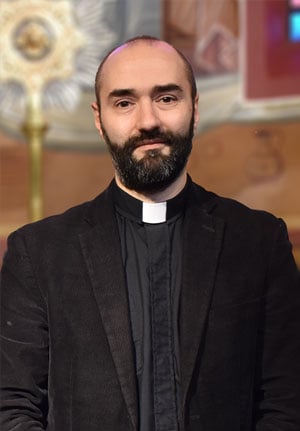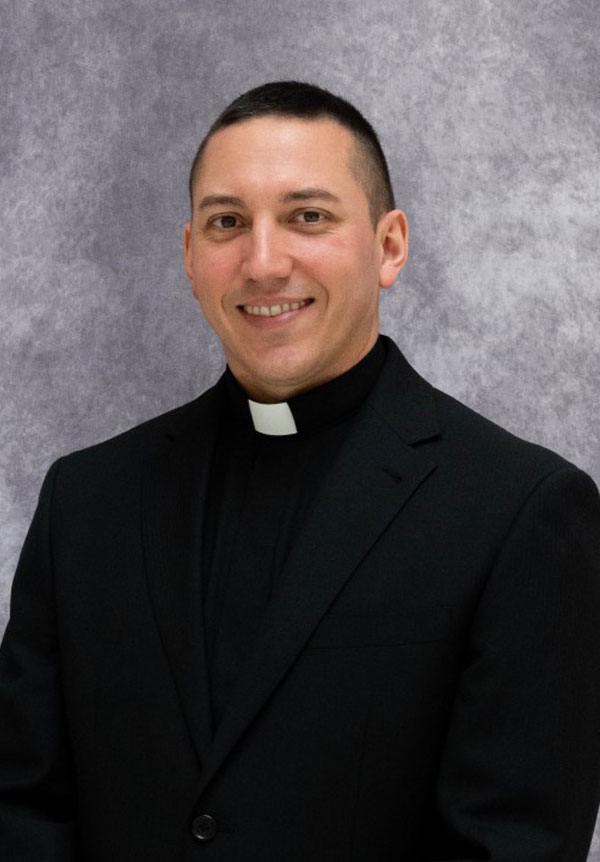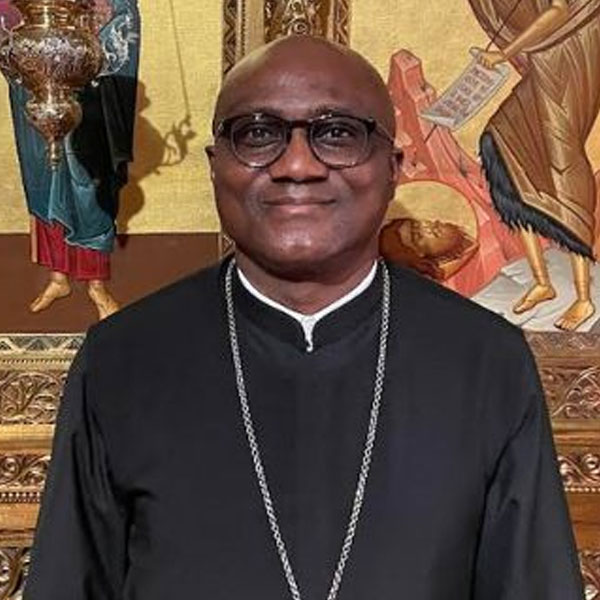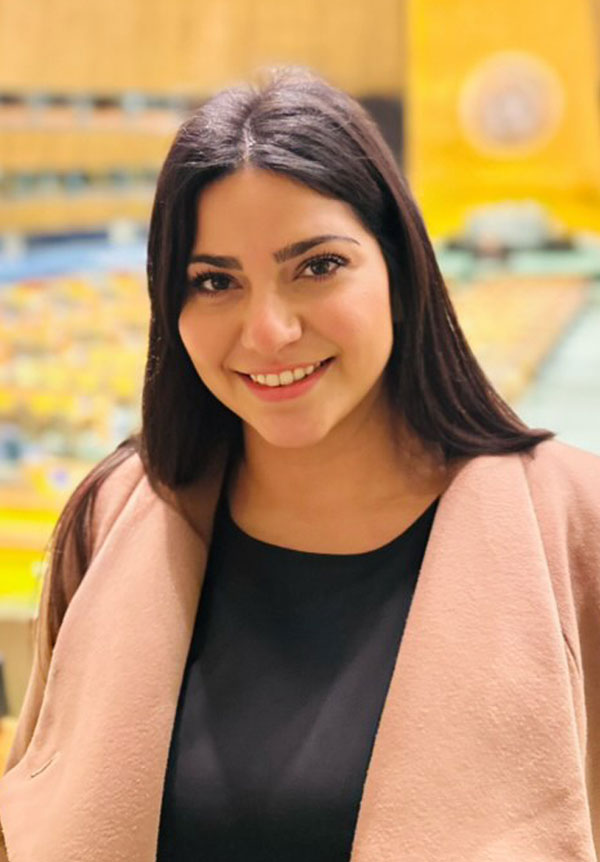Tel.: +1 (212) 570-3593
Email: [email protected]
The Department of Inter-Orthodox, Ecumenical and Interfaith Relations is tasked with cultivating professional relationships with faith-based organizations, academic institutions, and NGOs. It coordinates the ecumenical and interfaith dialogues of the Archdiocese on a national level and is responsible for pan-Orthodox activities through the Office of the Chairman of the Assembly of Canonical Orthodox Bishops of the USA.
;
Ecumenical Officer and Director, Department of Inter-Orthodox Ecumenical and Interfaith Relations
Director of Programs, Department of Inter-Orthodox, Ecumenical, and Interfaith Relations
Project Coordinator Mission and Outreach Development
Project Coordinator for the UN and Special Assistant, Department of Inter-Orthodox Ecumenical and Interfaith Relations
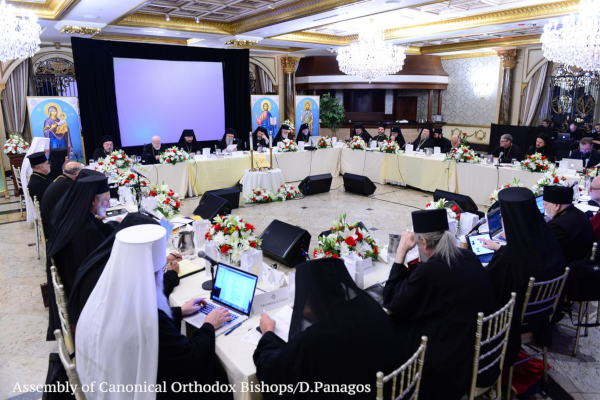
As the exarch of the Ecumenical Patriarchate, the Archbishop is the Chair of the Assembly of Canonical Orthodox Bishops of the United States of America. As such, the Department supports the Chairmanship of the Assembly by planning the annual meeting, staffing the Orthodox-Catholic dialogues, liaising with the secretariat and other hierarchs. Furthermore, the Department handles all Archdiocesan interactions with the other Orthodox Christian jurisdictions, generally, including in the United States of America and abroad.
The Department is responsible for all the inter-Christian memberships and dialogues in the United States of America. It also maintains relationships with individuals and other churches including the Oriental Orthodox Churches and the Roman Catholic Church.
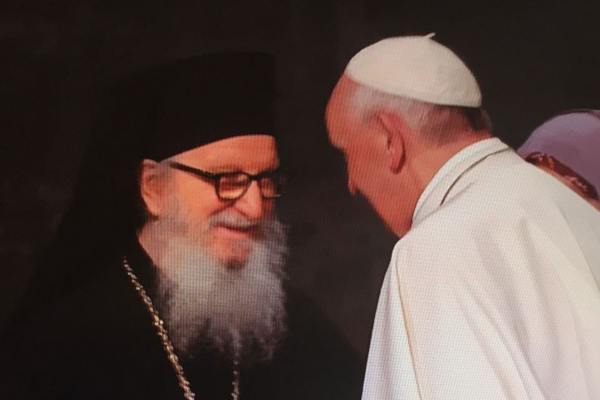
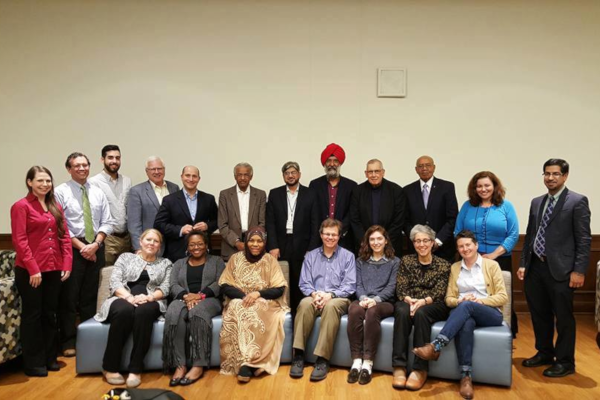
The Department interfaces with an infinite number of other religions and faith groups, for example Judaism, Islam, Buddhism, Hinduism, etc. The primary platforms of engagement, aside from bilateral relationships, are through institutional partnerships.
Whether developing relationships under the umbrella of Inter-Orthodox, Ecumenical or Interfaith, the Department follows two basic tracks: 1) theological dialogue and 2) united action on social issues. Furthermore, Orthodox Christian implementing agencies and organizations fall under the Assembly. Due to this significant overlap, the Archdiocese’s engagement on social issues has always been a responsibility and mandate of the Department.
The primary outlet for Department’s social engagement is through its work at the United Nations (“UN”), which the Department considers UN Programs a pan-Orthodox ministry of the Archdiocese.
Both the UN, but also externally, the Department works from a human rights perspective on human trafficking, water and sanitation, public health, racism, creation care (the environment), gender equality, children and youth, Middle East peace, the refugee crisis, and much more.
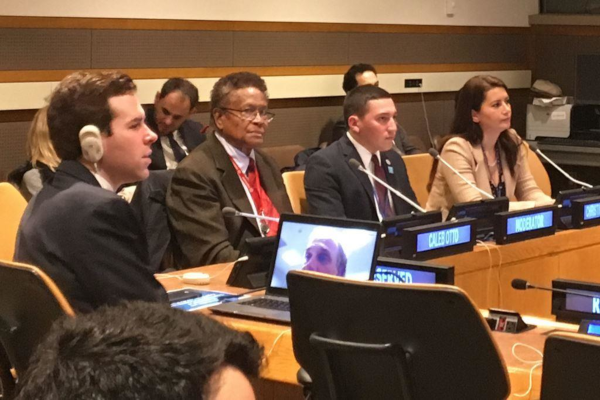
Patriarchal Endorsement | Archiepiscopal Foreword | Executive Summary | Preface
A statement on the social doctrine of the Orthodox Christian Church will be published during Great Lent 2020. This document was composed by a special commission of Orthodox scholars appointed by Ecumenical Patriarch Bartholomew (who ranks as first-among-equals among the hierarchs that comprise the Orthodox Church) and blessed for publication by the Holy and Sacred Synod of the Ecumenical Patriarchate.
It will be highly significant, and not without controversy, because it addresses contemporary social issues in a sustained manner that is unusual for the Orthodox Church, including poverty, racism, human rights, reproductive technology, and the environment. The purpose of the document is to offer a reference on vital issues and challenges in the world today in ways that are consistent with living as Orthodox Christians.
Ecumenical Patriarch Bartholomew appointed a special commission of theologians in 2017, and the commission, with the input from the different provinces of the Ecumenical Patriarchate, drafted a document for submission to and approval by the synod, which was granted synod in late 2019. The document, For the Life of the Word: Towards a Social Ethos of the Orthodox Church, is now being released in over a dozen languages as Orthodox Christians around the world experience Great Lent, a season of contemplation and preparation for Easter.
The document was prompted in part by the Holy and Great Council of the Orthodox Church held 2016, which endeavored to address issues of the contemporary world. The Ecumenical Patriarch understood the continued need, in the spirit of the Council, to further this effort.
The special commission itself is notable because it is not comprised of the hierarchs of the church or even exclusively clergy. Instead, it is also composed of laity, including two women. The commission includes a range of theologians and scholars from Europe and Asia, as well as the United Kingdom and the United States.
The special commission’s mandate was unique in that rarely are comprehensive social statements composed and presented by the Orthodox Church. While the document is not envisioned as a dogmatic decree or prescriptive doctrine, its purpose is “to serve as a solid foundation for reference and conversation on vital issues and challenges facing the world today” (Preface). To cite the opening words of the text: “Our spiritual lives, therefore, cannot fail also to be social lives” (Intro 3). This is the foundation for a social ethos of the Orthodox Church and the foundational tenet of the document.
Letter from His All-Holiness Ecumenical Patriarch Bartholomew
Preface
FOR THE LIFE OF THE WORLD: Toward the Social Ethos of the Orthodox Church
Note: The Document, in keeping with the spirit of its theology, follows the liturgical celebration of the Orthodox Church; each section begins with a line from the liturgy.
Section of document cited in parenthesis.
I. Introduction
It is time to serve the Lord
II. THE CHURCH IN THE PUBLIC SPHERE
Let us commend our whole life unto Christ our God
III. THE COURSE OF HUMAN LIFE
Sanctify our souls and bodies, and grant that we may worship you in holiness all the days of our lives
IV. POVERTY, WEALTH, AND CIVIL JUSTICE
Remember, Lord, those who are mindful of the poor
V. WAR, PEACE, VIOLENCE
For the peace of the whole world…
VI. ECUMENICAL RELATIONS AND RELATIONS WITH OTHER FAITHS
Let us pray for the unity of all
VII. ORTHODOXY AND HUMAN RIGHTS
You have created us in your own image and likeness
VIII. SCIENCE, TECHNOLOGY, AND THE NATURAL WORLD
Your own of your own we offer to you
IX. CONCLUSION
Let us the faithful rejoice, having this anchor of hope
